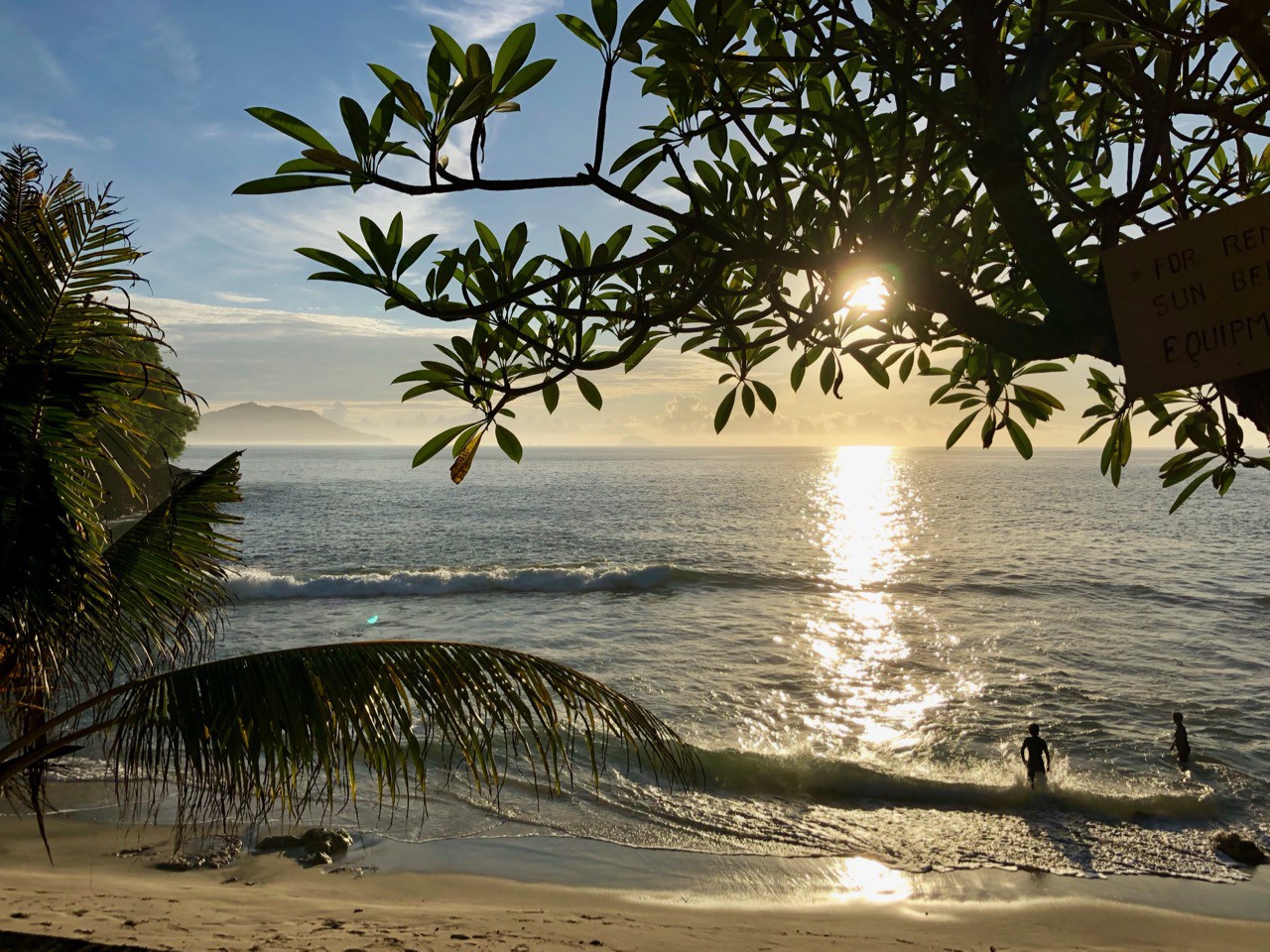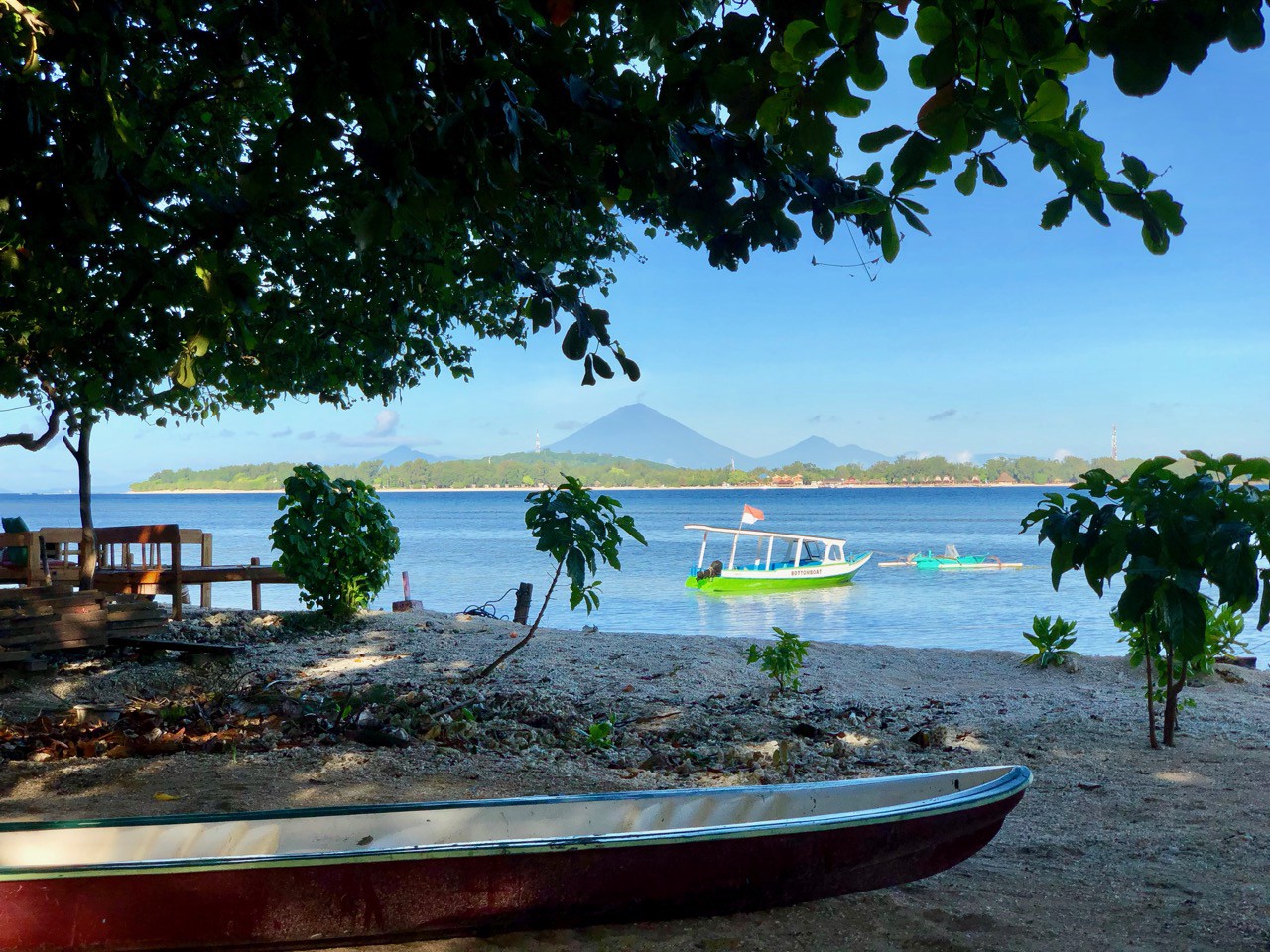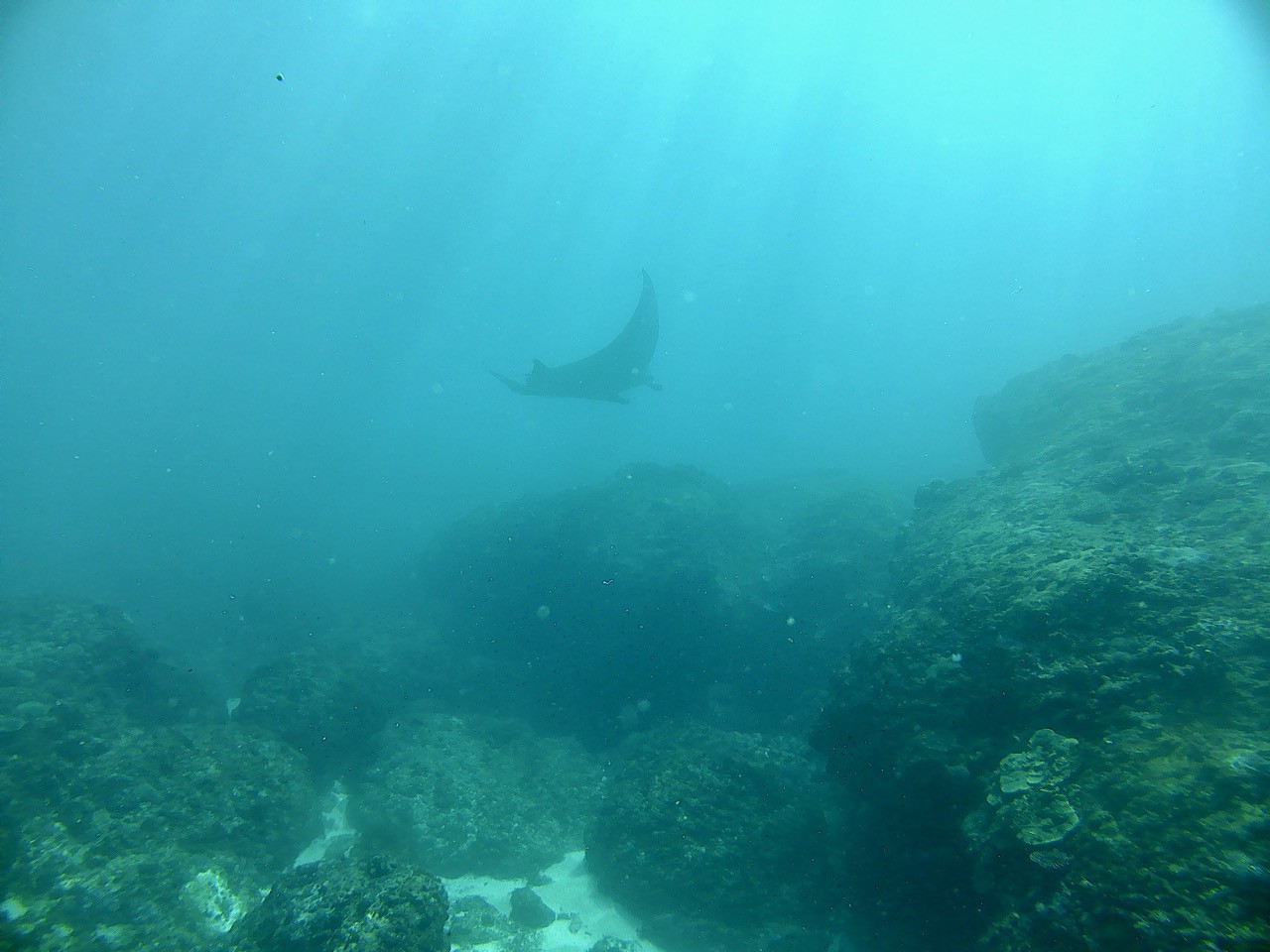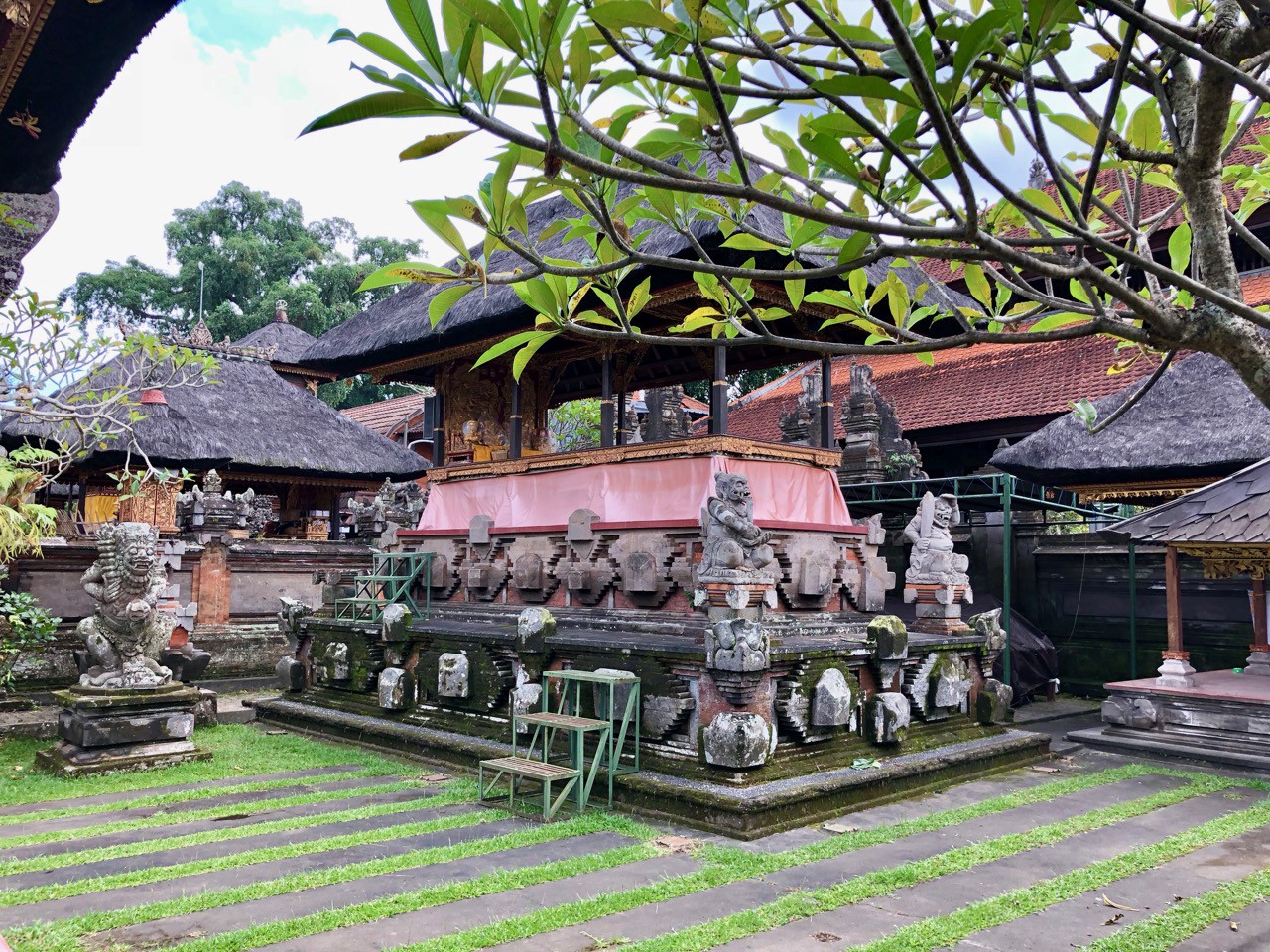Being a Nomad; The first 30 days
This is a summary of our trip to Indonesia.
30 days, many adventures, many mistakes.
Individual articles about Indonesia:
We arrived on February 7 and departed on March 9. As the visa is valid for 30 days and I’m lazy, I entered “02/07/2018 + 30 days” (American date format is required, no idea why) into my favourite search engine DuckDuckGo. The date I got was March 9, which I put into the calendar right away. Unfortunately, most date calculations don’t include the first date entered as the first day, which lead to us overstaying our visa by 1 day. Luckily we “only” had to pay 300.000 IDR per person per day.

There were several ups and downs during the trip. After living in Barcelona for 6 years, I am searching for solitude and peace. Canggu with it’s hundreds of motor scooters on narrow roads was definitely not that; it reminded me of Berlin with its hipsters. There’s no authenticity left in Canggu. Ubud was better and the monkeys definitely lifted my spirits, but it’s still too much traffic. During my time in Padang Bai and Gili Air I had absolutely no issues getting up at 6am and going for a run every other day. Neither in Canggu nor in Ubud did I once work out. Imagine an easy 5km run around the island, along the beach with the sun just rising over the calm sea, fresh winds … that was my running experience on Gili Air and it was inspiring.
We went to Canggu because I’m incorrigible and want to have a plan for everything. Given the articles and comments on the internet, I didn’t expect any shopping opportunity for slippers, beach wear and a GoPro on Gili Air, that’s why we went to Canggu to go shopping in surf shops etc., just to find the exact same shops on Gili Air. I still don’t have a GoPro, but I found everything else.
Being Without A Home

One of the first questions we usually get asked is “Where are you from?”, and when I answer “Germany”, people happily respond “Ohhh, Guten Tag”. I smile and nod, but feel very uncomfortable. Despite being from Germany, I don’t live there neither do I consider it my home, especially in a time where Nazis are the 3rd biggest party in Germany and there are countless attacks on foreigners. In the short time that we were there, we experienced passive aggression and racial “jokes”. Being in an interracial marriage, I’m not proud to be a German right now. So I tried to find new answers to the “Where are you from?” question.
After we explain our situation, the question changes to “where have you been and where are you going next?”. That’s when the conversation becomes really interesting. We are homeless. In order to skip the awkward “where are you from” and go to the interesting “where have you been and what’s next”, we started with various short versions (“elevator pitch”) to explain ourselves, ranging from “we’re traveling for a year” to “we’re homeless”. When we answered “we’re traveling”, people associated that with holidays, spending money and free time to roam around, which simply isn’t true (and leads to getting ripped off). So we slowly altered towards the homeless version. We tried the Digital Nomad variation as well, but most people don’t really understand what that is yet.
It was hard in the beginning to accept the fact, given the negative connotation to homelessness, but I’m getting more and more used to saying “I’m homeless, I’m a nomad” — I’m home where I am, enjoying the moment and moving on when I’m ready (or when the visa runs out). Accepting the situation also leads to a new mindset. Obviously we found dozens of souvenirs and things we wanted to buy for home. Not having one makes it easy to say No. The souvenirs we take are memories, friendships, photos and videos, everything else stays where it is.
Friends
Leaving Barcelona was easy. Leaving everyone behind was and still is hard. Staying at a place for a week or two at a time doesn’t offer the chance to build up friendships. Most of the people we meet, we see no more than 3–4 times before moving on. Sometimes contacts are exchanged, but that’s rather the exception. On the bright side, there are lots of opportunities for a first impression and we can improve along the way. It’s hard to tell if this will have an impact on our travel choice, maybe at some point we’ll slow down a little and stay for a few months at a place before moving on. For now we’ll continue to move frequently and see how things evolve.
The Best Moments
In the Sacred Monkey Forest I leaned against a wooden rail. A small monkey came over and took my finger, then shook my hand and kind of cuddled against my arm, that was really cute.
Also in the Monkey Forest, I sat on a bench for a few minutes. A small monkey came over and jumped up my back, eating his sweat potato on my shoulder. Another tourist came by and offered to take photographs. At some point the monkey jumped off and I got up, the other tourist sat down and waited for about 15 minutes for another monkey, but none came, so the poor guy left disappointed.

Diving in Gili Air was fantastic. Seeing huge sea turtles of over 1.5m span floating through the ocean is a very cool thing to see. Same goes for the Manta Rays at “Manta Point”. Some divers we met told us they went for a thousand dives before they finally saw a Manta, we got to see 5 or 6 that day on our first dive after the certification.
The Biggest Mistakes

We’ve made them, there’s no need for you to make the same mistakes 😏
Budget
For the first month, we didn’t have a budget, decided to just live a life and not look too closely at the prices because “everything is cheap anyway”, that was a terrible misconception. We didn’t plan in advance and decided most of the trips and hotels a day before leaving. We spent over €3000 in the first month in Indonesia. The lesson learned is to plan ahead and make a budget. In Barcelona we spent about €1200/month on rent and utilities and that should be the guideline for hotel rooms: 1200/30 is €40/night for us, which we exceeded a few times in touristy hotels. We didn’t use AirBnB as I’m not very comfortable with the platform, it’s much easier to find what you’re looking for on booking.com for example (beachfront + breakfast + rating over 9.0). Of course the PADI Open Water certificate and multiple dives afterwards were not budgeted for either. We are now in the process of defining a budget for accommodation as well as activities and dining.
Clothing
When you’re packing your bag to leave for a similar adventure, leave your clothes behind. You might be tempted to bring your favourite shirt, jeans, whatever. Just don’t. Resist the urge, pack it nicely in a bag and leave it in storage. It’ll be there when you decide it’s time to settle. Whatever you take is either too precious for the conditions here or simply too damn hot for the climate. Most places we’ve been had machine laundry so far, but you never know when the clothes come back ruined from laundry. Everything I brought on the trip is either on its way back to storage in a very expensive package or thrown away. The only things I still have from Europe: a few pairs of socks and underwear, 1 set of running clothes (being hand-washed straight after training) and 1 pair of crossfit shorts. I got new pure cotton or linen clothes here; “Ali Baba Pants” are 1–3 Euros and last for 1–2 months at least. Cotton or linen shirts are the same, 1–3 Euros at most. Even “fancy” brand shirts are cheaper and better adjusted to the climate and it won’t hurt as much when they come back damaged from the laundry. Also they’re super light-weight, the most important feature when traveling carry-on only.
Transport
The fast boat service Patagonia Xpress has shuttle services included in their fare, check out where they can pick you up in advance and save the money for a driver.
Shipping
A small package (30x30x30, 3kg) from Indonesia to Germany was €100. Make it worth it if you really need to ship stuff.